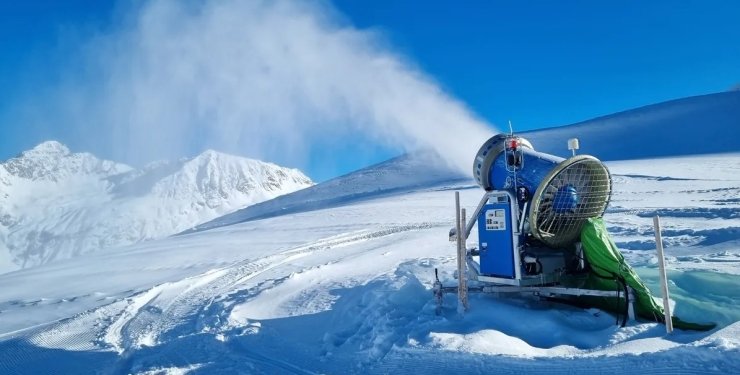The Earth’s climate system is undergoing changes that could destroy about 50% of all ski resorts in Europe.
It’s no secret that the Earth’s climate is under unprecedented stress: the planet has warmed up so much that scientists are no longer satisfied with the red color alone to indicate heat — they need to introduce an additional color scale. Now scientists are also warning that Europe could lose half of its ski resorts if the planet continues to heat up, writes IFLScience.
If global temperatures rise 2°C above pre-industrial levels, more than half of Europe’s ski resorts will face severe snow shortages, new research has warned.
In the new study, an international team of scientists from Austria and France used modern reanalyses and climate forecasts of snowpack reliability, as well as a detailed inventory of European ski resorts. In total, the scientists analyzed more than 2,000 thousand sites and found that 53% of resorts will face a very high risk of a small amount of snowfall if the critical threshold of 2°C is overcome. But this is not the most pessimistic forecast: upon reaching a threshold of 4°C above the pre-industrial level, 98% of resorts will experience a lack of snow.
Today, the largest world market for winter sports tourism is concentrated in Europe: about 60% of skiers around the world prefer European slopes. However, scientists believe that some of the region’s most popular destinations will soon simply have nothing to offer visitors in the winter. Statistics show that 89% of resorts in the Pyrenees, located on the border between France and Spain, face a high risk of light snowfall if the planet warms 2°C above pre-industrial levels.
It is assumed that covering half of all ski areas with artificial snow will reduce the percentage of affected resorts to 27%. At the same time, in the Alps and Pyrenees, this figure can be only seven and nine percent, respectively. However, if the planet reaches the mark of 4°C, the production of this much artificial snow will not be enough – 87% of resorts will still remain very vulnerable.

